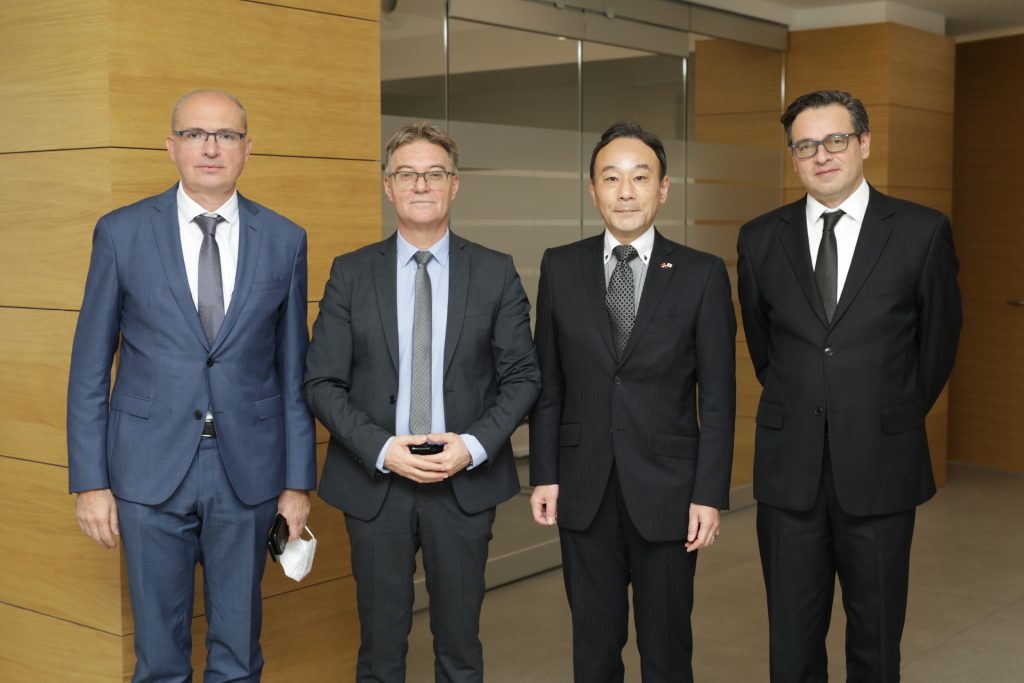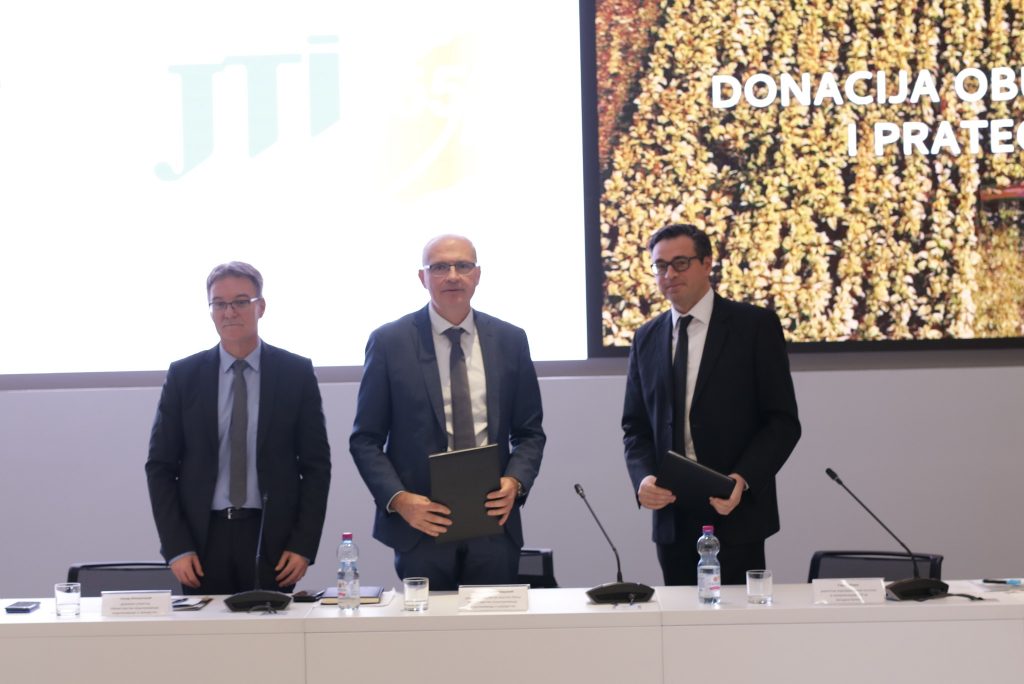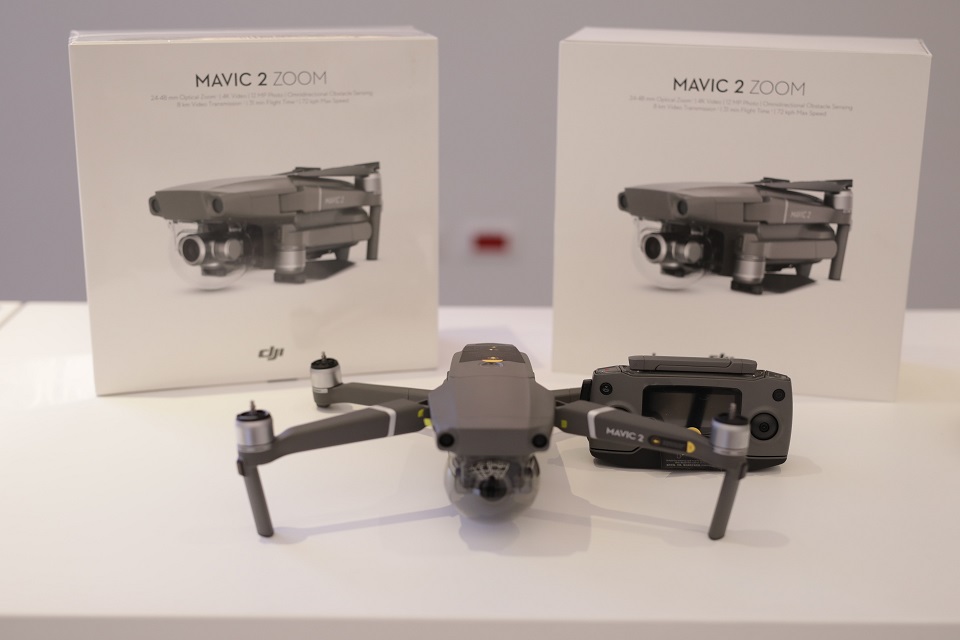Japan Tobacco International (JTI) donates drones to the Ministry of Agriculture, Forestry and Water Economy of the Republic of Serbia
Japan Tobacco International (JTI) donated four drones with accompanying equipment to the Phytosanitary Inspection of the Ministry of Agriculture, Forestry and Water Economy of the Republic of Serbia, which inspectors will use to combat illegal tobacco growing, as well as for other tasks. The value of the donation is close to RSD 1.2 million.

With the help of these drones, Phytosanitary Inspection officers will be able to monitor tobacco growing throughout Serbia much more efficiently, even in places where monitoring is difficult due to the size of plantations or terrain. Drones will be used for aerial monitoring of tobacco plantations, as well as other crops, illegal growing of which hurts the national budget and agricultural policy.
“Year after year, Serbia has been recording an increase in production in the majority of sectors and will conclude this year with over USD 5 billion in exports. Agricultural production is improving primarily thanks to the support that farmers get in the form of subsidies. With an increase in production, subsidy amounts also increase but also attempts to obtain subsidies in an illegal manner. That is why expanding the capacities and control of subsidy implementation are of extreme importance to us”, said Senad Mahmutović, state secretary at the Ministry of Agriculture, Forestry and Water Economy of the Republic of Serbia, and added: “This topic is especially interesting when it comes to tobacco production, as it is strictly controlled, and inspectional supervision is constant. This valuable donation will help our colleagues be faster and more efficient, which will additionally affect the national budget. The importance of this segment of our work is evidenced by the fact that, in the current year, thanks to preventing illegal production of tobacco on over 80 hectares, we prevented losses for Serbia’s budget in the amount of RSD 1,354,860,000, or EUR 11.58 million, by preventing the evasion of excise duties and VAT on cut tobacco that would have been produced in those areas.”

Japan Tobacco International (JTI), the only foreign investor that finances growing and purchases locally-grown tobacco, over the past five years of conducting its Satelit project, has contributed significantly to preventing and combatting illicit tobacco trade where it begins, on the farm. Through a combination of the latest technical solutions of satellite imaging, which separates tobacco from other crops through spectral analysis thanks to the plant’s specific chlorophyl, and by cross-refencing those images with state registers of legally planted tobacco, illegal tobacco plantations are discovered, which are then destroyed by the authorities.
“In the past five years, 793 tonnes of illegally grown tobacco have been destroyed, while the number of illegal tobacco plantations was reduced by 90%, preventing potential losses for the national budget in the amount of EUR 453 million. This is one in a series of activities that we are conducting as a partner of the Government and competent bodies in preventing the illicit trade in tobacco and tobacco products, and protecting sustainable legal growing,” said Goran Pekez, Director of Corporate Affairs and Communications at JTI Adriatica.
Previously, JTI donated 7 dogs to the Ministry of the Interior and Customs Administration, which are trained to find smuggled tobacco and cigarettes. JTI helps the government combat illicit trade by participating in the working group against tobacco smuggling, as well as the Expert Group for Combatting the Shadow Economy. JTI also supports AmCham in building up capacities of inspection services, which contributed to a drastic reduction in illicit trade on the Internet. Monitoring of online ads for illicit tobacco products resulted in 59 inspections, 13 misdemeanour reports and five potential criminal reports.

The Satelit project was launched in Serbia by using cutting-edge technology in this area. Thanks to the export of local knowledge and experience, the same technology is used in Spain, with planned expansion to Croatia and the Asia-Pacific region.